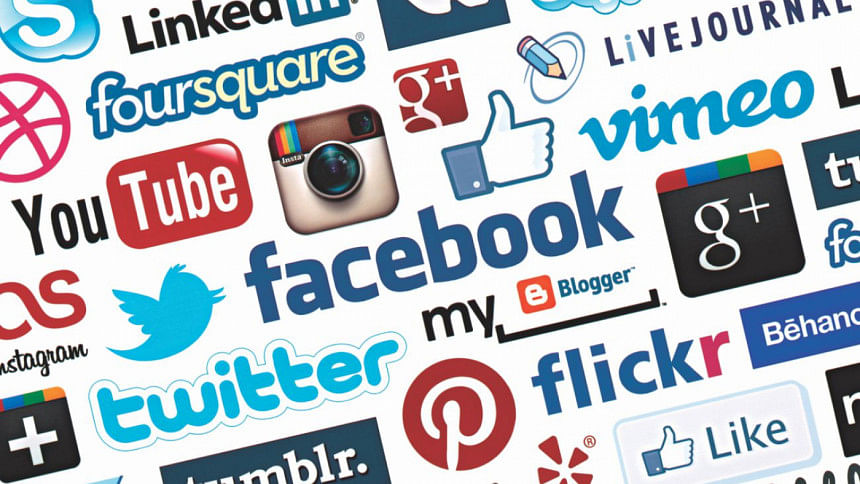Morality in the age of social media

The evolution of morality and ethics in the 21st century has taken a whole new direction, owing to the mass awareness and participation made possible by the ubiquity of social media. Throughout history, there have been discoveries that have changed society in unimaginable ways. Two important developments that shaped the history of moral evolution can be mentioned here. First, written language has revolutionised the communication of ideas over space and time. Second, new modes of transport radically transformed social norms by bringing people into contact with new cultures. Both these epoch-making events contributed significantly in shaping and reshaping moral thinking across cultures. Yet, these pale in comparison to how the internet and social media is shaping our individual and social identities.
In recent times, starting from the Arab Spring, social media has played an integral role in fomenting public opinion towards matters of morality, ethics and social justice. In Bangladesh, the relatively recent movements demanding safer streets following the deaths of a couple of students was fuelled, to a large degree, by social media participation. While there have been some positive developments in the evolution of public participation in shaping social justice through social media, one must exercise caution, and the role of social media must be carefully scrutinised.
Popular social media platform Facebook's early mission was "to make the world more open and connected"—and in the first days of social media, many people assumed that a huge global increase in connectivity would be an unequivocal good. However, in recent times, that optimism has somewhat dissipated. The American social psychologist Jonathan Haidt noted that the problem may not be connectivity itself, but the way social media turns so much communication into a public performance. What did he mean by this?
The social psychologist Mark Leary coined the term "sociometer" to describe the inner mental gauge that tells us, moment by moment, how we're doing in the eyes of others. Leary has argued that people don't actually care about self-esteem; contrarily, the evolutionary imperative is to get others to see them as desirable partners for various kinds of relationships. Social media, with its displays of likes, friends, followers, and retweets, has pulled the sociometers out of one's private thoughts and made them public. In 1790, the Anglo-Irish philosopher and statesman Edmund Burke wrote, "We are afraid to put men to live and trade each on his own private stock of reason; because we suspect that this stock in each man is small, and that the individuals would do better to avail themselves of the general bank and capital of nations and of ages."
Social media has put Burke's words to test. It pushes people of all ages towards a focus on the scandal, joke, or conflict of the day, but the effect may be particularly profound for younger generations, who have had less opportunity to acquire older ideas and information before plugging themselves into the social media stream. Since social media is an open platform, young people are being exposed to a barrage of "philosophies" and "guidelines," providing moral justification to almost every little thing, without proper critical analysis and creating moral rules almost "on the fly." An example of this is the fact that social media has channelled the susceptibility to divisions based on "group identity" into the creation of a "callout culture": anyone can be publicly shamed for saying something well-intentioned that someone else interprets uncharitably. As Greg Lukianoff and Jonathan Haidt put it, "New media platforms and outlets allow citizens to retreat into self-confirmatory bubbles, where their worst fears about the evils of the other side can be confirmed and amplified by extremists and cyber trolls' intent on sowing discord and division."
In conclusion, it has to be acknowledged that human civilisation is arguably living in the most peaceful (and possibly most moral) era in our species' existence. Technological innovation and social media have transformed our lives, in many positive ways. However, the frictions that remain deserves to be discussed. As cognitive psychologist, linguist and author Steven Pinker points out, much of our recent social history, including the culture wars between liberals and conservatives, consists of the moralisation or amoralisation of particular kinds of behaviour. Pinker aptly captures this by arguing that there seems to be a Law of Conservation of Moralisation, so that as old behaviours are taken out of the moralised column, new ones are added to it. As the tectonic plates of moral evolution shift, we must therefore scrutinise the role of social media in our lives, and be mindful of how we utilise it for positive changes.
Mahir A Rahman is a research associate at Bangladesh Institute of Development Studies (BIDS).

 For all latest news, follow The Daily Star's Google News channel.
For all latest news, follow The Daily Star's Google News channel. 



Comments